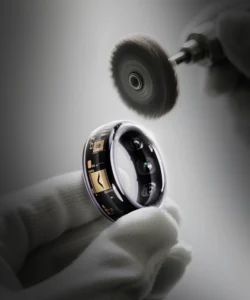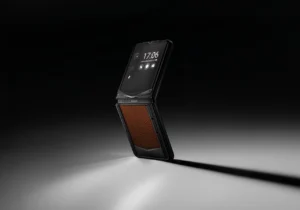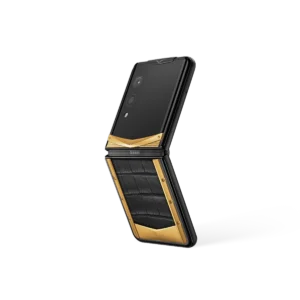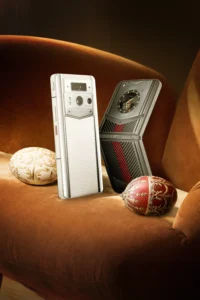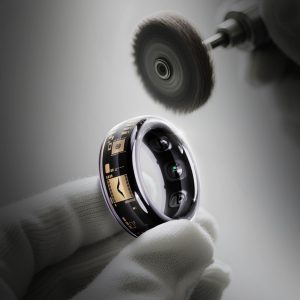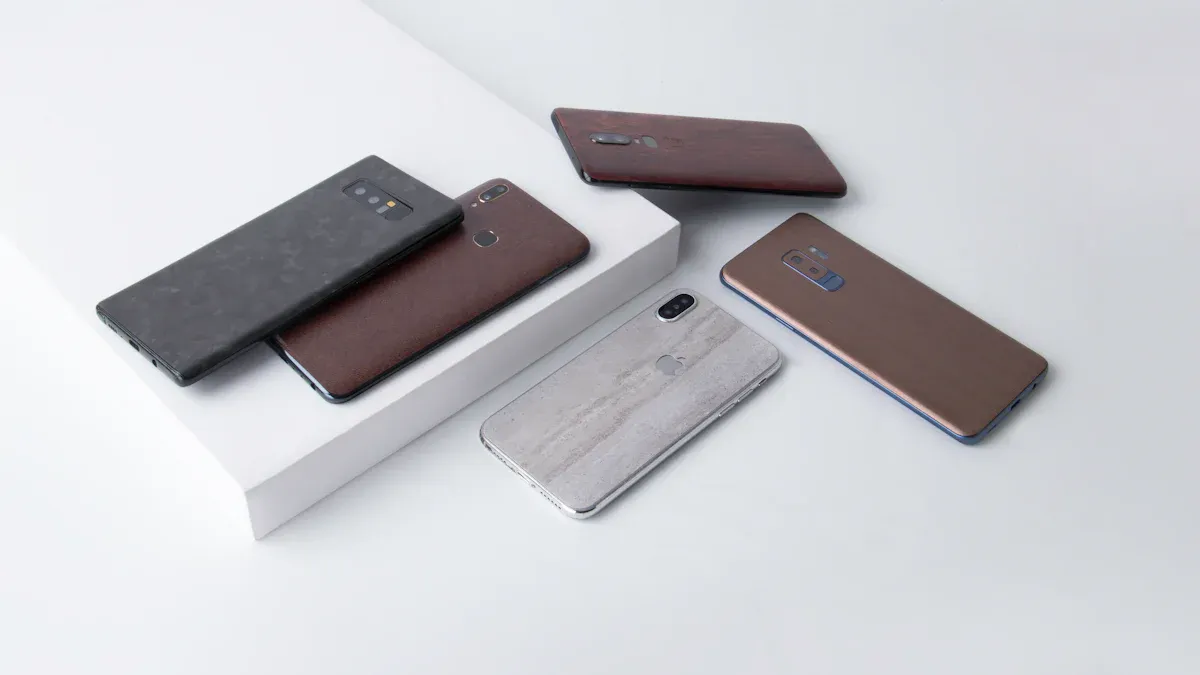
If you want a strong and fancy material for your phone, titanium alloy is the best. Many luxury brands, like Vertu with the Quantum Flip, use titanium because it looks nice and is very tough. Aluminum alloy is more common around the world because it is light, has bright colors, and costs less money. Both titanium and aluminum alloys change how your phone feels in your hand and how it looks. Phones with titanium alloy or precious metal bodies feel unique and high-end. Aluminum alloy makes your phone easy to use and cool to look at.
-
The aluminum alloy market for phones is worth billions and keeps getting bigger.
-
Titanium alloy feels professional, but aluminum shows style with color.
-
The material you pick changes how you use your phone every day.
Key Takeaways
-
Titanium alloy is very strong and tough, so it is good for people who want a phone that lasts a long time and feels fancy.
-
Aluminum alloy is light and not expensive, so it is good for people who want a phone that is easy to carry and does not cost much.
-
Both materials can be recycled, but aluminum is simpler to recycle and uses less energy, so it is better for the environment.
-
Think about how you use your phone every day; titanium alloy protects your phone well, but aluminum alloy is easier to carry and use.
-
Fancy phones often use titanium because it feels special, but aluminum lets phones have bright colors and cool designs, so people can pick what looks best to them.
Quick Comparison
Titanium Alloy vs Aluminum Alloy
When you look at phone bodies, you usually see two main options. These are titanium alloy and aluminum alloy. Each one has its own good points. Titanium alloy feels very solid and strong. Aluminum alloy feels light and smooth when you hold it. This comparison helps you see how each alloy changes your phone.
Here is a table that shows how titanium alloy and aluminum alloy compare in mechanical properties:
|
Property |
Titanium Alloy |
Aluminum Alloy |
|---|---|---|
|
Stiffness |
116 GPa |
Less than Titanium, varies by alloy |
|
Toughness |
Higher, absorbs significant energy before breaking |
Lower, especially at lower temperatures |
|
Tensile Strength |
240 to 550 MPa |
110 to 700 MPa, varies by alloy |
|
Compressive Strength |
Over 1000 MPa (Ti-6Al-4V) |
Up to 503 MPa (7075 alloy) |
|
Bending and Torsional Strength |
Higher resistance due to superior strength metrics |
Lower resistance compared to Titanium |
|
Hardness |
Up to 36 HRC (340 HB) |
Up to 150 HB (heat-treated 7075 alloy) |
|
Fatigue Strength |
Often surpassing 500 MPa |
150 to 280 MPa (7075 alloy) |
|
Plasticity |
Lower than Aluminum |
High, allows forming into complex shapes |
Titanium alloy stands out because it is strong, hard, and tough. Aluminum alloy is easier to shape into many forms. That is why luxury phones often use titanium alloy for a fancy feel. Most regular phones use aluminum alloy for comfort and style.
Key Differences
You may wonder what makes titanium alloy and aluminum alloy different. There is more to it than just strength. Here are the main things you should know:
-
Weight: Titanium alloy feels heavier and more solid. Aluminum alloy is lighter, so your phone is easier to carry.
-
Durability: Titanium alloy does not dent or scratch easily. Aluminum alloy can dent more but still protects your phone.
-
Manufacturing: Titanium alloy costs more and needs special tools to shape. Aluminum alloy is cheaper and easier to make into phone bodies.
-
Recyclability: Both materials can be recycled, but in different ways:
-
Solid-state recycling of titanium saves energy and keeps it strong.
-
Recycling titanium costs less than making new titanium, which helps the environment.
-
Aluminum can be recycled many times without losing quality.
-
Recycling aluminum uses only about 5% of the energy needed to make new aluminum.
-
Here is a table that shows the cost and machinability comparison:
|
Material |
Cost |
Machinability |
|---|---|---|
|
Titanium |
Most expensive due to complex extraction |
Difficult to machine, requires specialized tools |
|
Aluminum |
Relatively affordable and abundant |
Easy to machine with standard tools |
If you drop your phone, the material matters a lot. Titanium alloy keeps its shape and does not get damaged easily. Aluminum alloy bends to take the hit, which can protect the inside parts. This helps you see why some people pick titanium alloy for strength and luxury. Others choose aluminum alloy because it is light and easy to use.
Tip: If you want a phone that feels strong and looks fancy, titanium alloy is a great choice. If you want a phone that is light and easy to carry, aluminum alloy is a good pick.
The titanium vs aluminum debate depends on what you like most. Titanium alloys give you great strength and a luxury feel. Aluminum alloy gives you color, comfort, and a good price. This comparison helps you choose which material is best for your life.
Durability
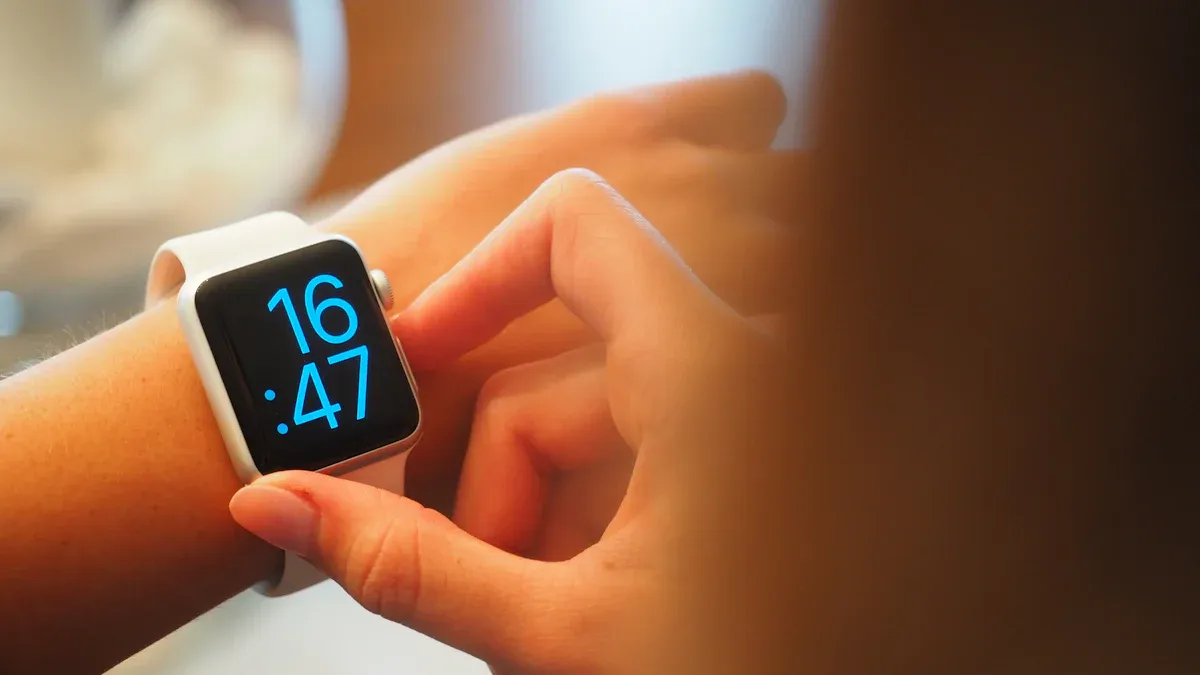
Strength and Resistance
When you choose a phone, you want it to be safe. Titanium alloy is very strong and reliable. It helps your phone stay safe if you drop it. Titanium alloy keeps its shape after bumps or falls. Its tensile strength is much higher than aluminum alloy. For example, TA2 titanium alloy has a yield strength over 550 MPa. This is more than double what most aluminum alloys have. Aluminum alloy is still strong, but its yield strength is usually between 50 and 200 MPa.
Here is a table that shows how strong these materials are:
|
Material |
Tensile Strength (MPa) |
Yield Strength (MPa) |
|---|---|---|
|
TC4 (Titanium Alloy) |
≥895 |
≥825 |
|
AL6063 (Aluminum Alloy) |
≥205 |
≥170 |
|
AL7075 (Aluminum Alloy) |
≥524 |
≥462 |
Titanium alloy makes your phone tougher and harder to break. You can trust it to protect your phone in hard times. Aluminum alloy works well, but titanium alloy is even more reliable. Both materials are tested to make sure they are strong. Titanium alloy often does better in these tests, showing it is stronger and safer.
Everyday Use
You use your phone all the time, so it needs to last. Titanium alloy is very durable and works well every day. It does not bend or dent easily. Your phone will look new for a long time. Aluminum alloy is lighter, so it feels nice to hold. But it can get dents or scratches faster than titanium.
If you want your phone to last, titanium alloy is a good pick. It gives you the protection you need. Aluminum alloy is still strong and works well, especially if you want a light phone. Both materials protect your phone, but titanium alloy is the strongest. You can count on titanium alloy to keep your phone safe every day.
Note: Tests show titanium alloy phones survive drops better than aluminum alloy phones. This means you do not have to worry as much about breaking your phone.
Weight and Comfort
In-Hand Feel
When you pick up a phone, you notice how it feels. Titanium alloy feels solid and fancy in your hand. You can tell it is strong every time you hold it. The surface feels cool and smooth, which many people enjoy. Aluminum alloy feels much lighter and softer to touch. You can hold an aluminum phone for a long time without your hand getting tired. Because aluminum is light, it is easy to use for hours. Titanium alloy is heavier, but it makes you feel your phone is safe. You know your phone is tough and will last a long time.
Here is a quick table to help you compare the in-hand feel:
|
Material |
Feel in Hand |
Comfort Level |
Notable Feature |
|---|---|---|---|
|
Titanium Alloy |
Solid, cool, dense |
High |
Premium, sturdy |
|
Aluminum Alloy |
Light, smooth |
Very High |
Lightweight, easy to grip |
Tip: If you want a phone that feels strong and fancy, pick titanium alloy. If you want a phone that is light and simple to hold, aluminum alloy is a good choice.
Portability
You take your phone everywhere, so weight is important. Titanium alloy phones feel heavier in your pocket or bag. This is because titanium is dense. Some people like the extra weight because it feels special. Aluminum alloy phones are much lighter to carry. You can put an aluminum phone in your pocket and barely feel it. The light weight of aluminum alloy makes it easy to move around.
Titanium alloy is strong for its weight, so your phone is tough but not too heavy. Aluminum alloy is also strong for its weight, but it is even lighter. Both materials work well, but aluminum alloy is best if you want the lightest phone.
Here are some key points about portability:
-
Titanium alloy gives you strength and lasts long, but is heavier.
-
Aluminum alloy keeps your phone light and easy to carry.
-
Both alloys work great for everyday use.
-
Your choice depends on if you want more strength or less weight.
Think about what you do every day. If you want a phone that feels tough and fancy, titanium alloy is best. If you want a phone that is easy to carry all day, aluminum alloy is better. Both materials work well, but weight and comfort will help you choose which one fits you.
Aesthetics
Premium Look
When you pick up a phone made of titanium alloy, you notice it feels different. Titanium alloy gives your phone a shiny and modern look that stands out. Many people think titanium means luxury and strength. The surface of titanium alloy does not scratch easily, so your phone looks new for a long time. You can feel how cool and heavy it is every time you hold it. Titanium alloy is used in expensive phones because it fits the image of top brands.
Aluminum alloy also looks nice and stylish. Many phones use aluminum alloy because it feels smooth and looks clean. Aluminum alloy makes your phone feel light, which many people like. The finish on aluminum alloy can be shiny or flat, depending on the design. Some brands use anodizing to add bright colors to aluminum, so your phone can look special. Both titanium alloy and aluminum alloy give your phone a modern style, but titanium alloy is more fancy.
Here is a table showing what people like about how these materials look:
|
Material |
Aesthetic Preference |
Notes |
|---|---|---|
|
Titanium |
Highly resistant to scratches, enhances premium look and feel. |
|
|
Aluminum |
Lightweight, cost-effective |
Offers a practical aesthetic appeal, often associated with affordability and functionality. |
|
iPhone 16 Pro |
Various color options (Desert Titanium, etc.) |
Color options enhance visual appeal and align with modern consumer preferences. |
Design Options
You have lots of choices for your phone’s design. Titanium alloy lets makers create special textures and finishes. They use custom tools and CNC machines to make cool patterns on titanium. This gives each titanium alloy phone a unique look. Titanium is hard, so every phone gets a high-quality finish. Your phone feels special and strong.
Aluminum alloy gives you even more ways to change your phone’s look. Anodizing lets brands add many colors to aluminum alloy. You can pick bright colors or soft shades. Laser etching and nano-etching add texture and depth to aluminum alloy, making your phone feel personal. Nano-etched patterns can help with water resistance and change how light shines on your phone. Aluminum alloy makes it easy to find a phone that matches your style.
Tip: If you want a phone that feels rare and strong, titanium alloy is a great choice. If you like color and want more design options, aluminum alloy gives you plenty of choices.
Both titanium alloy and aluminum alloy look and feel great. The material you pick will change how you enjoy your phone every day.
Value and Cost
Investment
When you look at the price of a phone, you want to know if you get good value. Titanium alloy phones usually have a higher price. This is because titanium is rare and hard to work with. You pay more for the quality and strength that titanium alloy gives. Many luxury phones, like the Vertu Quantum Flip, use titanium alloy for this reason. You see the price reflect the quality and the special feel of titanium.
Aluminum alloy phones cost less. Aluminum is easy to find and shape. You get a lower price, but you still get good quality. Aluminum alloy gives you a nice look and a light feel. If you want value for money, aluminum alloy phones are a smart choice. You do not pay as much, but you still get a strong phone.
Here is a table to help you compare:
|
Alloy Type |
Price Range |
Value for Money |
Quality Level |
|---|---|---|---|
|
Titanium Alloy |
High |
Medium |
Premium |
|
Aluminum Alloy |
Low to Medium |
High |
Good |
Tip: If you want a phone that feels special and strong, titanium alloy is worth the price. If you want to save money and still get quality, aluminum alloy is a great pick.
Long-Term Worth
You want your phone to last. Titanium alloy keeps its quality over time. The price you pay at first gives you a phone that stays strong and looks new. Titanium does not rust or wear out fast. This means you get lasting value. You may pay more, but you do not need to replace your phone as often.
Aluminum alloy also gives you good value. The price is lower, but the quality is still high. Aluminum alloy phones can last a long time if you take care of them. You get value for money because you pay less and still get a phone that works well.
-
Titanium alloy gives you long-term value with its strength and quality.
-
Aluminum alloy gives you value for money with a lower price and good quality.
Remember: The best material for you depends on what you want—lasting quality or a better price.
Thermal Performance
Heat Dissipation
Phones can get warm when you use them. The phone’s body material changes how heat leaves the device. Aluminum alloy helps your phone cool down fast. It moves heat away from inside parts quickly. Titanium alloy does not move heat as well. Its thermal conductivity is much lower than aluminum.
|
Material |
Thermal Conductivity |
|---|---|
|
Titanium Alloy |
|
|
Aluminum Alloy |
High |
If you play games or watch videos, your phone heats up. Aluminum alloy spreads heat fast, so your phone stays cooler. Titanium alloy keeps heat longer. Your phone may feel warmer if it uses titanium alloy.
-
Aluminum has high thermal conductivity, so it works well for electronics.
-
Titanium alloys have very low thermal conductivity, much lower than aluminum.
Tip: If you want a phone that stays cool when you use it a lot, aluminum alloy is a smart pick.
Daily Impact
Thermal performance changes how you use your phone every day. If your phone gets too hot, it might slow down or feel uncomfortable. Aluminum alloy helps by moving heat away from your hands and phone parts. You can use your phone longer without worrying about it getting too hot.
Titanium alloy phones may feel warmer after long use. This does not mean they are unsafe, but you might notice it. Some people like how solid titanium feels, even if it gets warm. Metal phone bodies, especially aluminum, sometimes caused signal problems before. New technology now helps aluminum phones get better signal and faster data.
Note: Both materials protect your phone, but aluminum alloy gives you better heat control in daily life. Titanium alloy feels fancy, but you may notice more warmth if you use your phone a lot.
Scratch Resistance
Surface Hardness
You want your phone to look new for a long time. The surface hardness of the material is important for this. Titanium alloy and aluminum alloy are not the same in hardness. Their Mohs hardness ratings show this difference:
-
Titanium alloys: Mohs hardness between 6 and 6.5
-
Aluminum alloys: Mohs hardness rating of 2.75
Titanium alloy is much harder than aluminum alloy. Phones with titanium bodies get fewer scratches from keys or coins. Titanium resists scratches better because it is harder. Aluminum alloy scratches more easily than titanium. Even small drops or bumps can leave marks on aluminum phones.
Experts say titanium alloy is better at resisting scratches than aluminum. Titanium is less likely to get scuffed or dented. Aluminum is strong but shows wear and tear faster. Many people see that aluminum cases lose their shine and smooth feel quickly.
Here is a table to help you compare:
|
Material |
Scratch Resistance |
Durability |
Impact Resistance |
|---|---|---|---|
|
Titanium Alloy |
Superior |
High |
High |
|
Aluminum Alloy |
Lower |
Moderate |
Moderate |
Longevity
You want your phone to last a long time. The material you pick changes how your phone looks as it ages. Titanium alloy keeps its nice look for years. Its hard surface protects against scratches and dents every day. A titanium phone body stays looking new, even after lots of use.
Aluminum alloy phones can look old after just a few months. The softer surface gets scratches and dents more easily. If you drop your aluminum phone, you might see scuffs or small bends. Many people say their aluminum phones lose their good looks fast.
-
Titanium is harder and does not scratch as much.
-
Aluminum dents and scuffs easily if dropped.
-
People often see that aluminum cases lose their nice look quickly because of damage.
If you want a phone that stays strong and pretty, titanium alloy is the better pick. You will have a phone that stands up to daily life and keeps its fancy look for a long time.
Phones with Titanium Alloy or Precious Metal Bodies
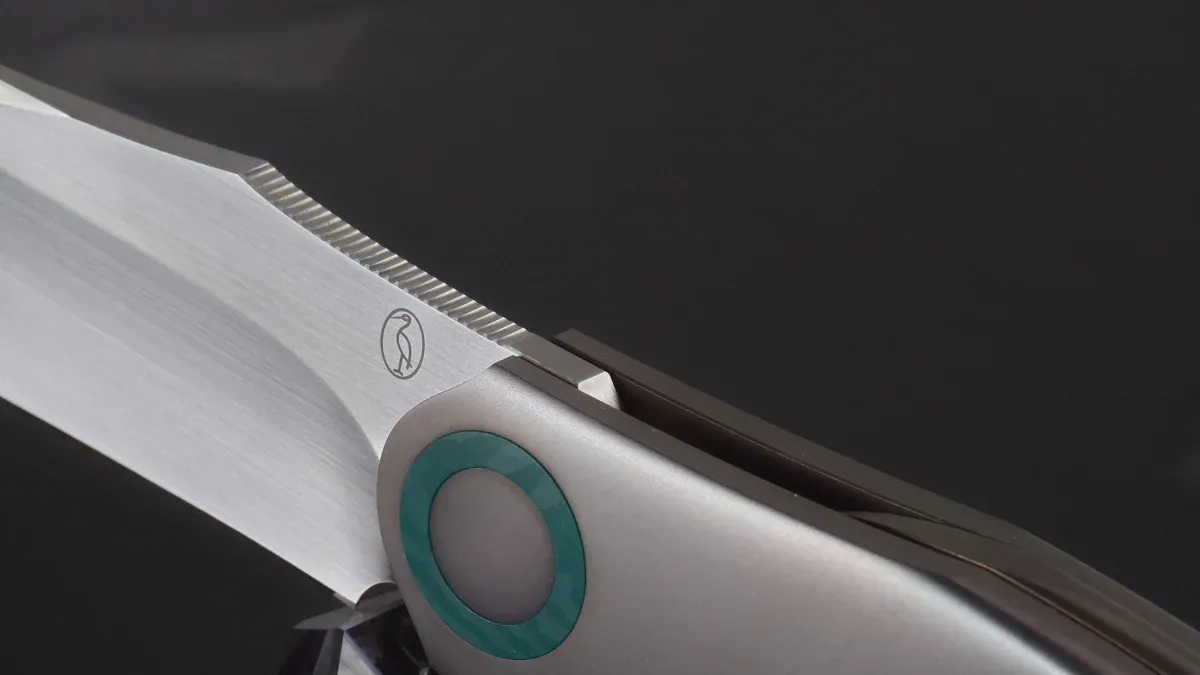
Vertu Quantum Flip Example
Phones made with titanium alloy or precious metals look different from regular phones. The Vertu Quantum Flip is a good example of mixing cool technology and fancy materials. This phone uses strong aerospace-grade titanium alloy for its frame. The titanium alloy has an HV900 hardness rating, so it does not scratch or dent easily. You can drop it, and it will not break or get damaged from daily use.
Vertu adds more than just titanium to the Quantum Flip. The phone has shiny hand-polished finishes and choices like calfskin or alligator leather. Skilled workers make each phone by hand. This means every phone feels special and personal. The way these phones are made makes them more than just something you use. They show off style and strength.
If you want a phone that feels cool and different every time you hold it, the Vertu Quantum Flip is a great choice.
Other Premium Models
Many famous brands now use titanium alloy or precious metals in their best phones. You can see this in new iPhone models. Both the iPhone 15 Pro and iPhone 15 Pro Max use Grade 5 titanium for their frames. This makes the phones light but also very strong. The titanium frame gives the phones a fancy look that many people like.
Here is a table showing some popular phones with titanium alloy or precious metal bodies:
|
Phone Model |
Material Used |
|---|---|
|
iPhone 15 Pro |
Grade 5 Titanium |
|
iPhone 15 Pro Max |
Grade 5 Titanium |
|
Vertu Luxury Phones |
Titanium, precious materials |
Phones with titanium alloy or precious metal bodies often have other luxury features. These can be sapphire crystal screens or nice leather backs. Each phone mixes toughness and style. When you compare these phones to aluminum alloy models, you can see they feel and look different. Phones with titanium alloy or precious metal bodies make you feel special and give lasting value.
-
Vertu luxury smartphones use titanium, sapphire crystal, and fancy leather.
-
Every phone is made by hand for a special finish.
-
Phones with titanium alloy or precious metal bodies are leaders in luxury and strength.
User Profiles
Titanium Alloy Users
You might pick a titanium alloy phone if you want something fancy and strong. Many people like how solid and different titanium alloy feels. Every time you hold your phone, you notice it feels special. The phone feels heavy and cool, which makes it seem expensive. If you care about your phone lasting a long time, titanium alloy is a good choice. It does not bend or dent easily, even if you drop it.
Some people say the glass on titanium alloy phones can still get scratched or cracked. The titanium frame cannot always protect the glass parts. A few users have small allergic reactions, but this does not happen often. Most people talk about how nice it is to own a phone that feels special and lasts longer. You might also like the fancy touches, like shiny finishes and custom materials, that come with luxury phones. These features make your phone feel even more special every day.
If you want a phone that feels rare and strong, titanium alloy gives you something different from most phones.
Aluminum Alloy Users
You might like an aluminum alloy phone if you want something light and easy to carry. Aluminum alloy phones feel smooth and nice in your hand. You can use your phone for a long time without your hand getting tired. Many people like that aluminum alloy helps keep the phone cool when you play games or watch videos. This makes your phone more fun to use, especially for long periods.
Aluminum alloy is also good for people who care about the planet. It is easy to recycle, which is good for the environment. You get a phone that is strong but not heavy, so it is easy to take with you. In daily life, aluminum alloy is great for comfort and simple design. You get a phone that fits your needs and is easy to use every day.
If you want a phone that is light, cool, and simple to use, aluminum alloy gives you a phone that is both useful and fun.
Picking titanium alloy or aluminum alloy depends on what you want most. Titanium alloy is best if you want a phone that feels strong and lasts long. It can handle tough drops and bumps. Aluminum alloy is good if you care about price, comfort, and helping the planet. It is light and easy to carry.
|
Factor |
Titanium Alloy |
Aluminum Alloy |
|---|---|---|
|
Superior |
Good |
|
|
Weight |
Heavier |
Lighter |
|
Cost |
Higher |
Lower |
|
Luxury Appeal |
High |
Moderate |
-
Titanium is great for people who want a strong and fancy phone.
-
Aluminum is better for those who like light phones and saving money.
-
Think about what you do every day and how luxury phones with titanium or precious metals are becoming more popular.
FAQ
What makes titanium alloy special for phone bodies?
Titanium alloy makes your phone feel strong and fancy. It does not scratch or dent easily. Many luxury brands use it because it lasts longer. Titanium alloy also gives your phone a special feel.
Is aluminum alloy safe for everyday use?
Aluminum alloy is safe to use in phones. It feels light and cool when you hold it. Many brands pick aluminum alloy because it is tough and easy to recycle.
Do titanium alloy phones feel heavier than aluminum ones?
Titanium alloy phones are heavier than aluminum ones. The extra weight makes the phone feel strong and fancy. Aluminum alloy phones are lighter, so they are easy to carry.
Why do luxury phones use precious metals or titanium?
Luxury phones use titanium or precious metals to look different. These materials show off good design and special finishes. They also make the phone last longer and look more expensive.
Can I recycle my titanium or aluminum phone body?
You can recycle both titanium and aluminum phone bodies. Recycling helps cut down on waste from electronics. Aluminum is very easy to recycle, and reusing titanium saves energy.

